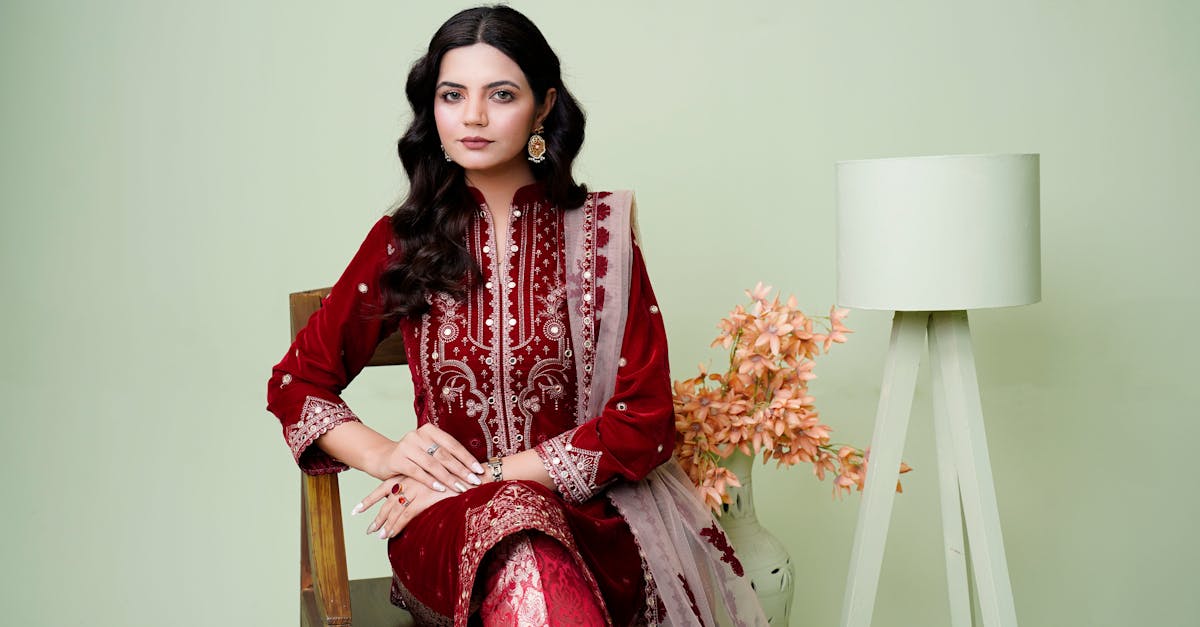Mindful Fashion Odyssey Harmonious Wellness
Introduction to Mindful Fashion
In an era where mindfulness and wellness have become crucial lifestyle components, the fashion industry is undergoing a transformative shift towards more conscious practices. Mindful fashion merges eco-friendly, ethically produced clothing with consumer awareness of the impact and value of their choices. It highlights the importance of sustainability, ethical labor, and mental well-being in fashion. As consumers, we are beginning to understand that what we wear can profoundly affect feelings of wellness and harmony. Mindful fashion fosters a deeper connection between individuals and their garments, promoting harmony and intentionality. Let’s embark on a mindful fashion odyssey to explore how this concept nurtures a holistic sense of well-being.
Advertisement
The Roots of Mindful Fashion
Mindful fashion finds its origins in sustainable and ethical fashion movements. Rising concerns about fast fashion resulted in calls for transparency, ethical practices, and environmental consideration. Designers started responding to this demand by reevaluating sourcing, production, and waste management techniques. Originating from the idea that clothes tell stories of their creation, mindful fashion seeks to appreciate every piece. Its roots expand into various cultures and traditions that have long embraced slow and artisanal fashion, a delightful departure from the impersonal pace of fast fashion. Reinventing these philosophies for the modern age, mindful fashion celebrates craftsmanship and environmental respect.
Advertisement
Sustainable Fabrics and Materials
A vital aspect of mindful fashion is the commitment to utilizing sustainable fabrics like organic cotton, hemp, and recycled materials. Such choices drastically reduce the environmental footprint of clothing production and consumption. Bamboo, Tencel, and linen have emerged as popular eco-friendly materials that offer breathability, durability, and reduced resource consumption. The emphasis on these materials offers consumers a chance to enjoy clothing that aligns with their values. Using recycled polyester made from discarded bottles, for instance, turns waste into wearables, showcasing innovation in sustainable fashion. By choosing clothing with an eye on sustainability, consumers contribute to preserving the planet's vital resources.
Advertisement
Ethical Production Practices
Mindful fashion significantly emphasizes ethical production, advocating for fair wages, safe working conditions, and workers' rights within the garment industry. Ethical production supports artisans, cooperatives, and brands committed to transparent supply chains and equitable practices. Consumers increasingly demand greater accountability from brands, prompting companies to adopt practices that honor both people and the planet. Brands employing fair-trade methods often share the stories behind their garments, creating a meaningful bond with consumers. By valuing ethical production, mindful fashion promotes social harmony and community empowerment, challenging industry norms to create positive change.
Advertisement
The Impact on Mental Well-being
The mindfulness movement transcends physical well-being, deeply intertwining with mental health. Mindful fashion fosters a sense of connection to garments, contributing to emotional resonance and self-expression. By choosing apparel that aligns with both aesthetic and ethical preferences, consumers engage in a form of self-care, reflecting personal values. This practice encourages conscious consumerism, reducing impulsive purchases driven by fleeting trends. Owning clothes that tell meaningful stories bring joy and satisfaction, positively impacting mental health. The harmony between wearing what resonates personally and knowing its backstory can foster mental clarity and confidence.
Advertisement
The Rise of Slow Fashion
Slow fashion, an integral part of mindful fashion, embraces longevity, durability, and timeless appeal. It emphasizes quality over quantity, fostering a deeper appreciation for each piece. This counter-movement to fast fashion channels attention toward craftsmanship, promoting clothes that withstand fleeting trends. Designed to be cherished, slow fashion garments often feature classic styles allowing for versatility and enduring relevance. The rise of slow fashion encourages consumers to invest in fewer, high-quality garments that contribute to both environmental health and personal harmony. This movement aligns with the principles of minimalism, favoring meaningful possessions over clutter.
Advertisement
Bridging Fashion and Nature
Mindful fashion strengthens the connection between fashion and nature, emphasizing the importance of environmental stewardship. The industry’s shift towards natural dyes, organic fibers, and pollution reduction initiatives exemplifies this harmonious relationship. Brands adopting eco-conscious practices act as bridges between nature and contemporary design, inspiring awe and respect for our planet’s resources. By illuminating how fashion and nature intersect, this approach engages consumers in a journey of awareness and appreciation for the natural world. Encouraging responsible choices, mindful fashion nurtures an ecological understanding that goes beyond fabric and stitching.
Advertisement
Prominent Pioneers of Mindful Fashion
Several trailblazing designers have emerged as leaders in the mindful fashion movement. Stella McCartney, Patagonia, and Eileen Fisher are renowned for integrating sustainability, ethical practices, and innovative design. These brands consistently challenge industry norms, pioneering materials like vegan leather and recyclables. Their commitment serves as a model for emerging designers and established labels seeking to navigate the mindful fashion space. Collaborative efforts with artisans and global initiatives elevate these pioneers as torchbearers for change. By advocating for mindful practices, they help forge a path toward a fashion industry aligned with wellness and environmental harmony.
Advertisement
Cultivating Consumer Awareness
Developing consumer awareness is essential to the success of mindful fashion. The industry increasingly focuses on educating buyers about the impact of their purchasing choices on personal well-being and the environment. Transparent branding and certifications enable consumers to make informed decisions aligned with their values. Movements and campaigns promoting mindfulness in fashion foster community and consciousness, providing a platform for open dialogues on ethical consumption. Public awareness initiatives challenge consumers to rethink fast fashion practices and embrace intentional wardrobes reflective of their principles. By engaging consumers, mindful fashion encourages positive change and community evolution.
Advertisement
Summary and Conclusion
Mindful fashion represents a cultural shift towards ethical, sustainable, and conscious living, harmonizing the relationship between fashion choices and holistic wellness. From fostering sustainable practices to elevating mental health through intentionality, this movement enriches everyday life. Brands and consumers alike play a pivotal role in championing these values to progress along the fashion odyssey. As the industry continues to evolve, mindful fashion paves the way for sustainable innovation and environmental stewardship. Through mindful choices, we contribute to a fashion industry that celebrates harmony, humanity, and nature, crafting a future brimming with creativity and consciousness.
Advertisement








